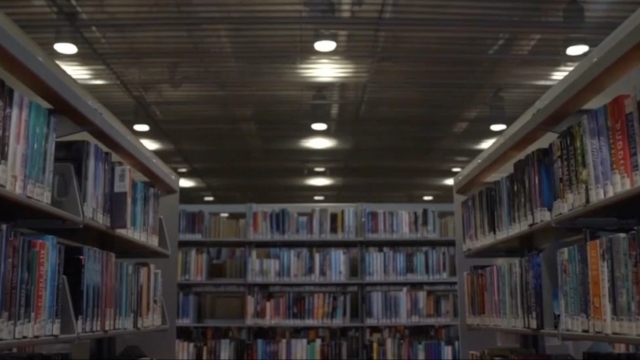The Brooklyn and Seattle public libraries asked a simple question to those signing up for free digital access to their libraries: Why do you want this library card?
What they received was hundreds of personal stories from young people about not just the state of book and library access across the country, but stories that gave a unique look at how limited access to some books impacts young people.
Amy Mikel, who helped design the program, didn't expect to be opened up to so many personal stories of what access to books meant to these young people.
"What's even more shocking and frankly very hard emotionally for me to begin to process was that so many of these young people were simply telling us, begging us for a library card because they had such limited access to books and reading material," said Mikel.
Last year, Scripps News learned about the initiative called Books Unbanned, started by the Brooklyn Public library in 2022. The library said it was aiming to combat book censorship in some parts of the country. The initiative makes their entire collection available digitally to any young person in the country under 18. Four other libraries have followed suit, including libraries in the Seattle area, with similar programs.
This week, the Brooklyn and Seattle Public Libraries released the findings from asking that simple question.
A total of 14,050 young people have signed up for the Books Unbanned card from the libraries and they have checked out more than 360,000 items according to program leaders.
SEE MORE: Pink to give away thousands of banned books at Florida concerts
From the 855 stories analyzed in the report, they found that young people living in areas where certain titles have been censored were seeking a card, but others said that they wanted access because they don't have a library nearby that they can access for free, or their local libraries are underfunded and don't carry many books to begin with.
"Say the young person didn't have access to a school library at all, or maybe they're homeschooled, or there's other reasons why they don't have ready access to that school library collection, or the school library collections of books are being pulled off the shelf or is severely limited in other ways," she said.
They've also received stories from teens who liked accessing digital books because of a disability they have, or they just liked the fact they could check out books without judgment from others.
"Over and over again, we heard people say how important the privacy was to them, that they were afraid of being seen reading certain books, especially those who identified as LGBTQIA," said Mikel.
The issue of book censorship and limiting young people's access to books has become a growing and contentious issue.
Many across the country believe that elected school district boards of directors or parents should have a say in what titles belong on a school or public library shelf.
In 2022, an Oklahoma teacher resigned after backlash from providing the QR code to the Brooklyn Public Library's Books Unbanned program to students.
Mikel and her team say their findings are important to understand why people seek access through the programs these libraries offer.
Trending stories at Scrippsnews.com




